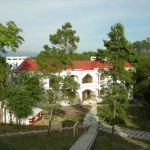Other
Haiti is a Caribbean country. It occupies the western, smaller portion of the island of Hispaniola, in the Greater Antillean archipelago, which it shares with the Dominican Republic. Ayiti ("land of high mountains") was the indigenous Taíno name for the island. The country's highest point is Pic la Selle, at 2,680 metres (8,793 ft). The total area of Haiti is 27,750 square kilometres (10,714 sq mi) and its capital is Port-au-Prince. Haitian Creole and French are the official languages.
Haiti's regional, historical, and ethno-linguistic position is unique for several reasons. When it gained independence in 1804, it was the first independent nation of Latin America and the Caribbean, the first black-led republic in the world, and the second republic in the Americas. Its successful revolution by slaves and free people of color lasted nearly a decade; all the first leaders of government were former slaves.[7] Haiti is the only predominantly Francophone independent nation in the Americas. It is one of only two independent nations in the Americas (along with Canada) to designate French as an official language; the other French-speaking areas are all overseas départements, or collectivités, of France.
With its 9.7 million people, Haiti is the most populous full member-state of the Caribbean Community (CARICOM). The country is also a member of the Latin Union. In 2012, Haiti announced its intention to seek associate membership status in the African Union.[8]
| Region (Department) | No visa required |
|---|---|
| Languages spoken | Haitian Creole, French |
| Currency used | Haitian Gourde |
| Area (km2) | 27,750 km2 (140th) 10,714 sq mi |
| Country name | Haiti |



